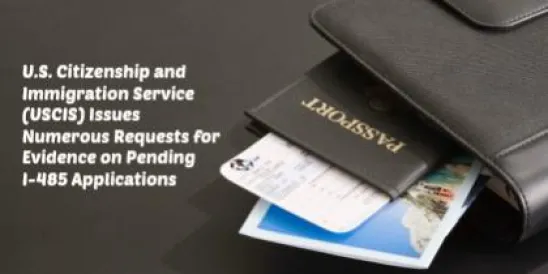USCIS has issued a draft policy memorandum for comment entitled Age-Out Protection for Derivative U Nonimmigrant Status Holders: Pending Petitions, Initial Approvals, and Extensions of Status. The comment period for the memo ends January 10, 2013.
The memo offers guidance relating to U-3 derivative nonimmigrant petitions, which are petitions filed by the children of U-1 visa applicants to remain with their parents as their derivative beneficiaries. Until now, USCIS has held U-3 applications that were filed prior to the derivative turning 21 but were still pending when the derivative turned 21. The memo indicates that USCIS will review these applications on a case-by-case basis to determine whether each U-3 applicant merits a favorable exercise of discretion. If so, these applicants will be granted deferred action and will be notified that they may apply for employment authorization.
In addition, the memo states that USCIS will extend age-out protection to U-3 applicants whose petitions are adjudicated on or after the effective date of the memo and will grant the full four-year validity period if the derivative meets the definition of “child” (i.e., is under age 21) at the time he/she is granted U-3 status, even if the child will turn 21 at some point during the validity period of the U-3 approval.
Also, U-3s who were granted U status for less than four years who have yet to turn 21 will be eligible to extend their U status up to a total period of four years, regardless of whether the U-3 will age out during the four-year period. These U-3s may file an I-539 to Application to Extend/Change Nonimmigrant Status.
Further, USCIS will allow U-3s who were previously granted U status for less than four years because they were turning 21 before the four year limit would be reached and have now attained age 21 to file a retroactive extension of their U-3 status for up to a total of four years on Form I-539.
The U visa was created by Congress to be available to certain victims of crimes in the United States who have been helpful, are being helpful, or are likely to be helpful to law enforcement in an investigation of the crime or prosecution of a criminal. This memo appears to remedy many of the issues caused by long-pending U applications, during which time many children of U-1 applicants turned 21. The memo appears to promote the use of discretion in those cases, and promotes family unity by allowing aged-out children to obtain a full four years of U nonimmigrant status. Since U visa holders are eligible to adjust their status to lawful permanent resident after three years, the policies of this memo may assist U holders in obtaining permanent residence by returning them to U status where they did not initially receive at least three years of U status due to aging out.


 />i
/>i

